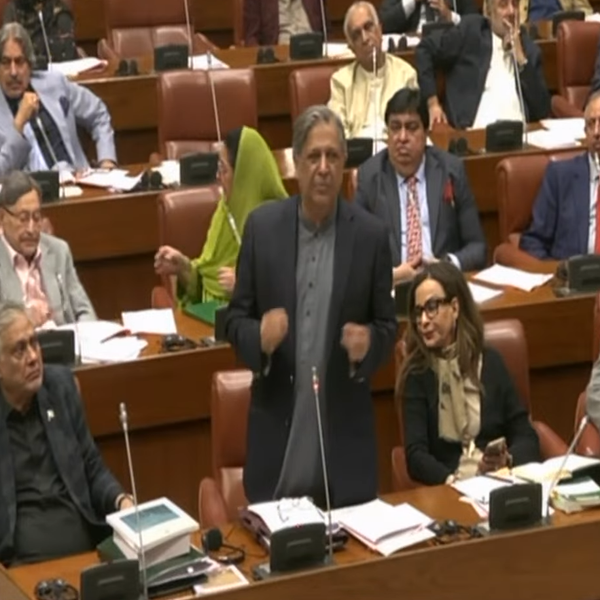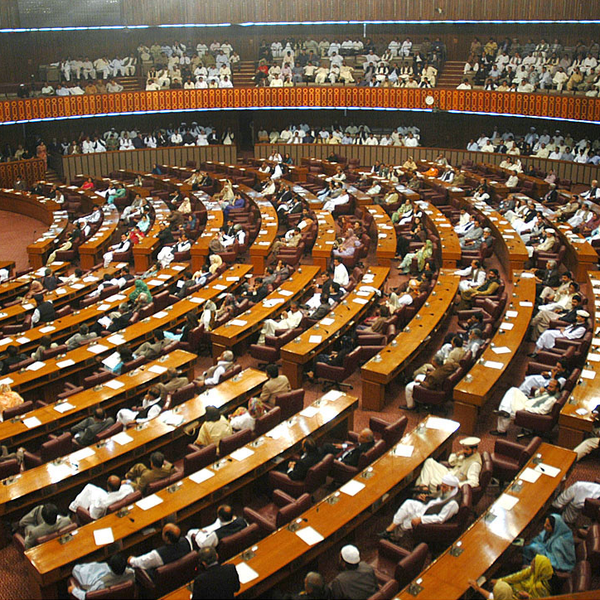How AGP Limited is planning to become Pakistan's top pharma company
The company's penetration is expanding rapidly and it plans to bring new therapies to Pakistan, according to its CEO
Business Desk
The Business Desk tracks economic trends, market movements, and business developments, offering analysis of both local and global financial news.
With rapidly expanding penetration and a growth rate of over 30%, AGP Limited has some exciting plans in the pipeline for becoming one of Pakistan's top pharmaceutical companies.
In an exclusive interview with Nukta, its Chief Executive Officer Kamran Nasir said the company was "beating the market by a substantial number when it comes to growth" and its sales were rising drastically.
The company's vision was forward-looking, and was focused heavily on two important aspects — bringing new therapies to Pakistan, and imparting scientific education to medical fraternity, he added.
"What multinational corporations were previously doing in Pakistan previously, AGP will do now," Nasir shared.
The company's future plans also include investing in research and development within the country and expanding penetration even into developed countries.
"We believe we are a group [that will do] the things that previously have not been done in Pakistan. We have many plans," the CEO said.
Deregulating the pharma sector
Talking about the pharma sector's deregulation, Nasir said it was a significant relief for pharmaceutical companies, which have faced rising production costs due to higher utility and labor expenses, as well as currency devaluation.
He noted that 90% of Active Pharmaceutical Ingredients (APIs) are imported, further impacting costs.
Globally, the pharmaceutical sector operates without such regulations, making Pakistan's system of classifying medicines as essential and non-essential unique.
Previously, the Drug Regulatory Authority of Pakistan (DRAP) capped price increases at 7% for essential medicines and 10% for non-essential medicines, linking them to the Consumer Price Index (CPI).
Nasir believes that deregulation will foster competition among manufacturers, leading to a price war that ultimately benefits consumers.
He also highlighted the significant price disparity between medicines in Pakistan and other regional countries like India.
The political sensitivity surrounding medicine prices has historically prevented governments from allowing pharmaceutical companies to pass on higher costs to consumers, the CEO pointed out. This has led to a decline in the availability of medicines, prompting the government to reconsider its stance and opt for deregulation.
Nasir concluded that deregulation will pave the way for pharmaceutical companies to expand and upgrade, ultimately benefiting the industry and consumers.
Inconsistent policies, instability
Nasir pointed out that several multinational companies have exited Pakistan due to inconsistent policies, political instability, and lack of legal protection for intellectual property.
He emphasized the need for a stable environment to attract foreign direct investment and prevent further decline in the number of multinational companies operating in Pakistan.
Looking ahead, Nasir stressed the importance of fiscal discipline in the coming year to avoid economic stagnation.
The pharmaceutical sector, according to Nasir, has the potential to boost exports and attract foreign investment.
AGP Limited — with its subsidiaries OBS Pakistan and OBS-AGP — has a product portfolio comprising 60% non-essential and 40% essential medicines. However, Nasir cautioned that deregulation alone does not guarantee success, as performance depends on the therapies offered and product positioning.
Since 2006, OBS has completed eight mergers and acquisitions of multinational companies.
Nasir called for strong government incentives and export facilitation to develop a robust ecosystem for API manufacturing in Pakistan.
He also highlighted the absence of FDA-approved plants in Pakistan, which limits export opportunities to developed markets.











Comments
See what people are discussing